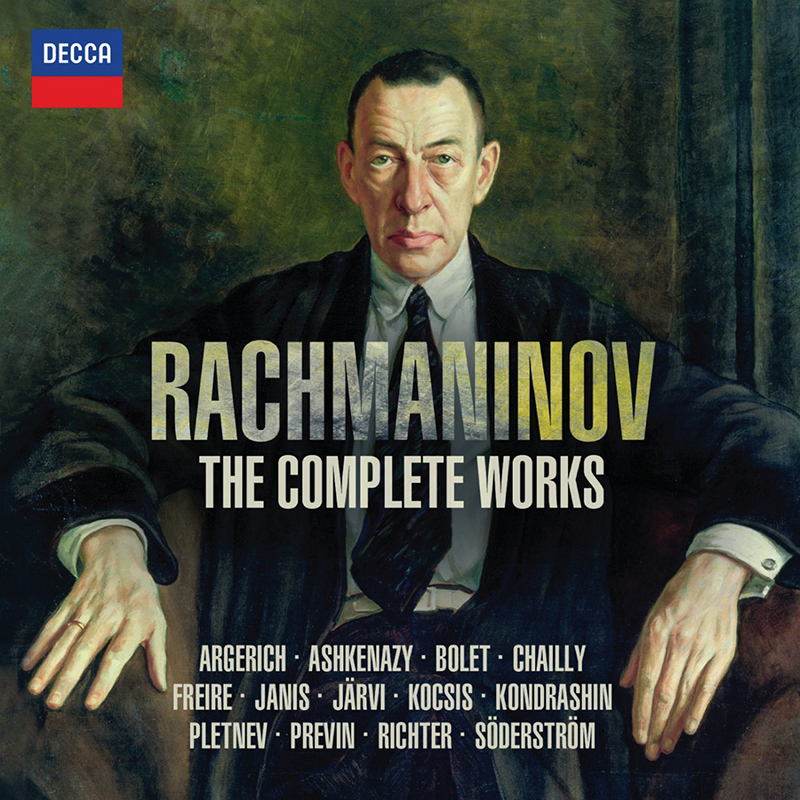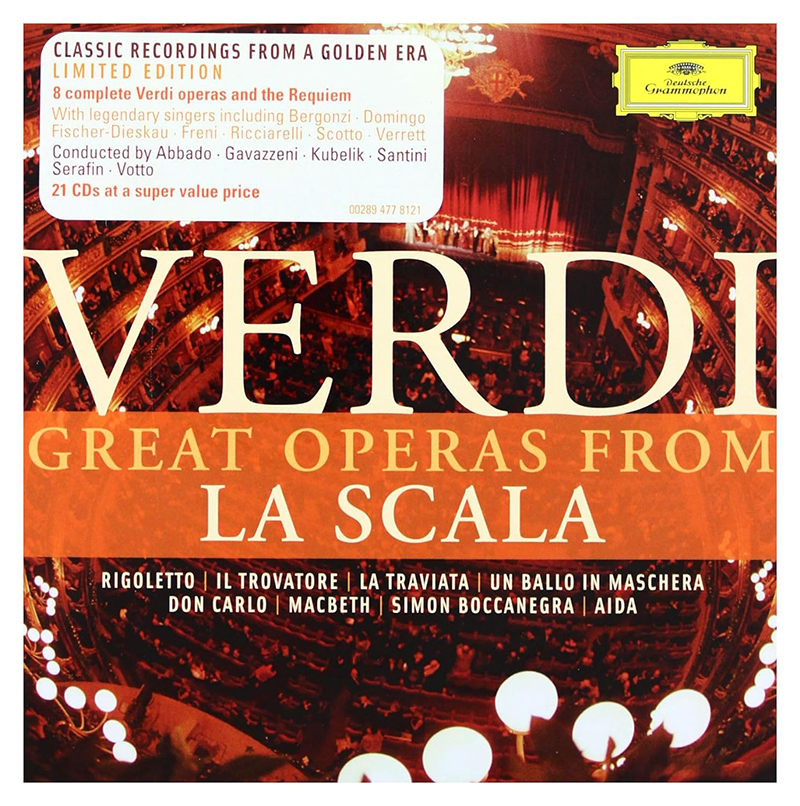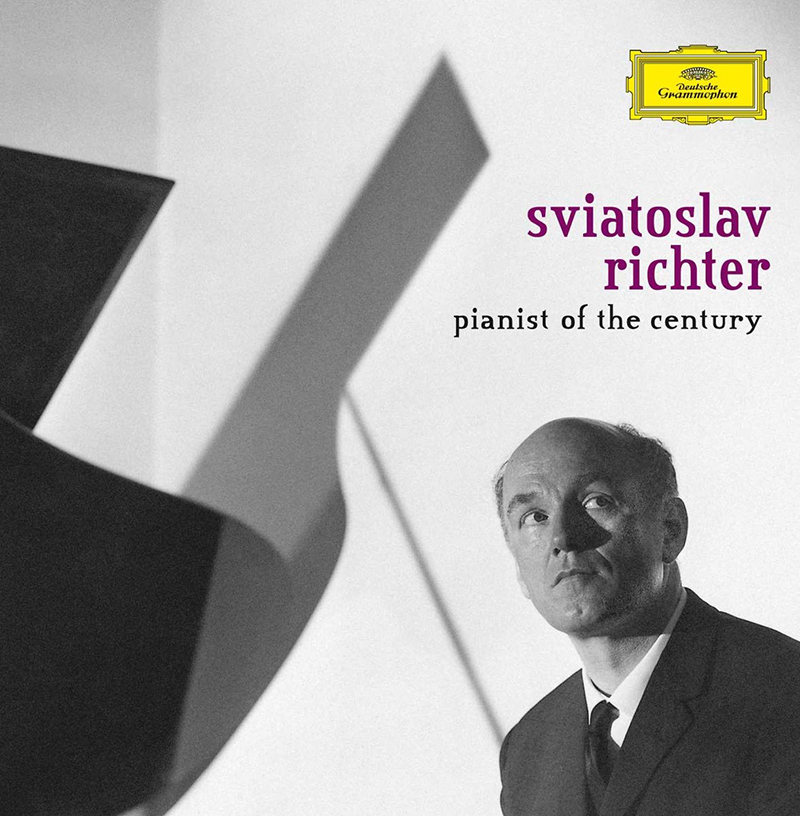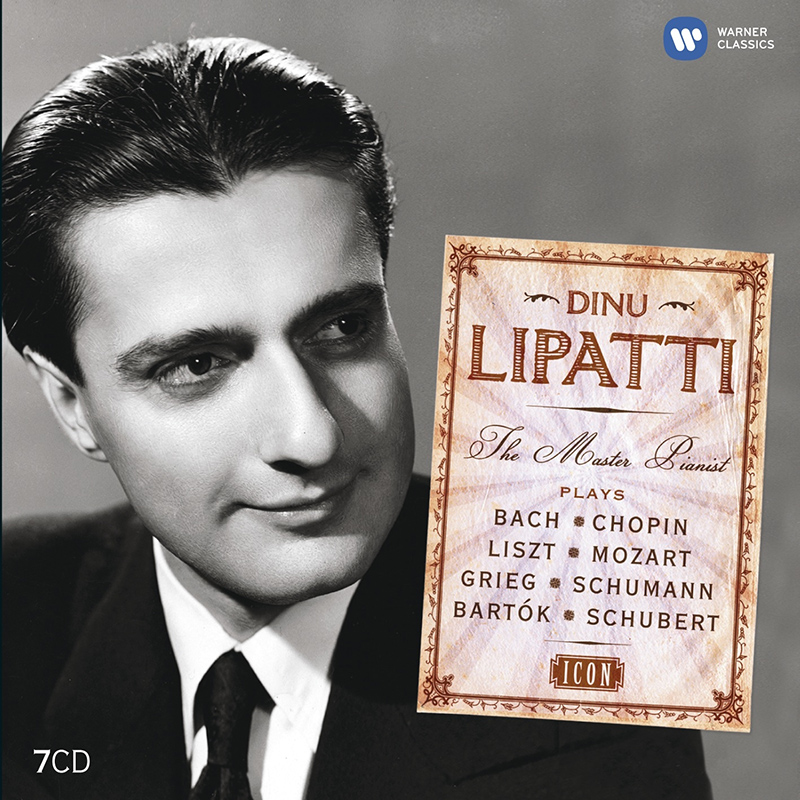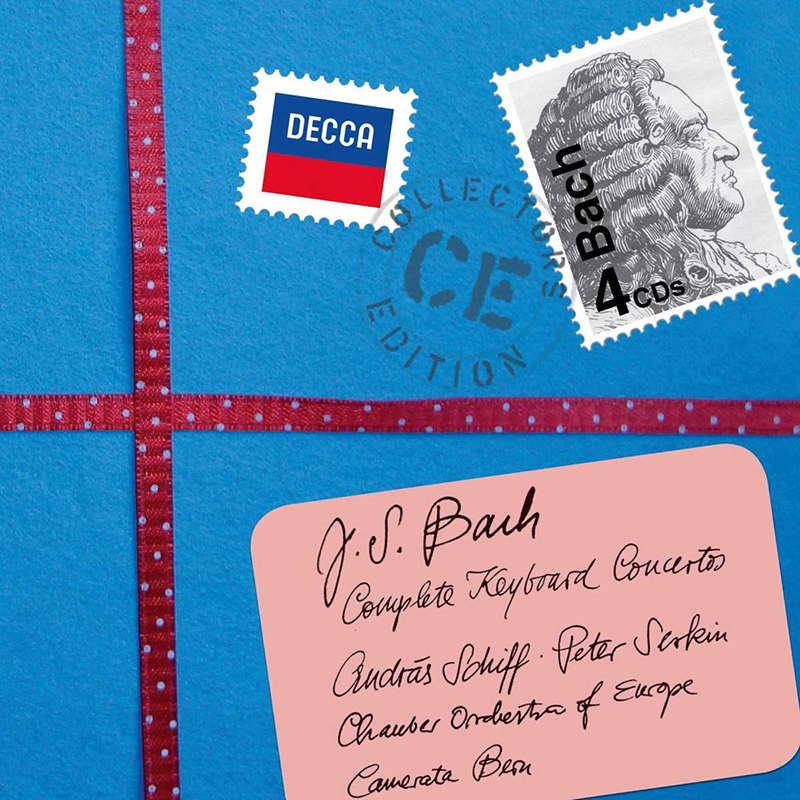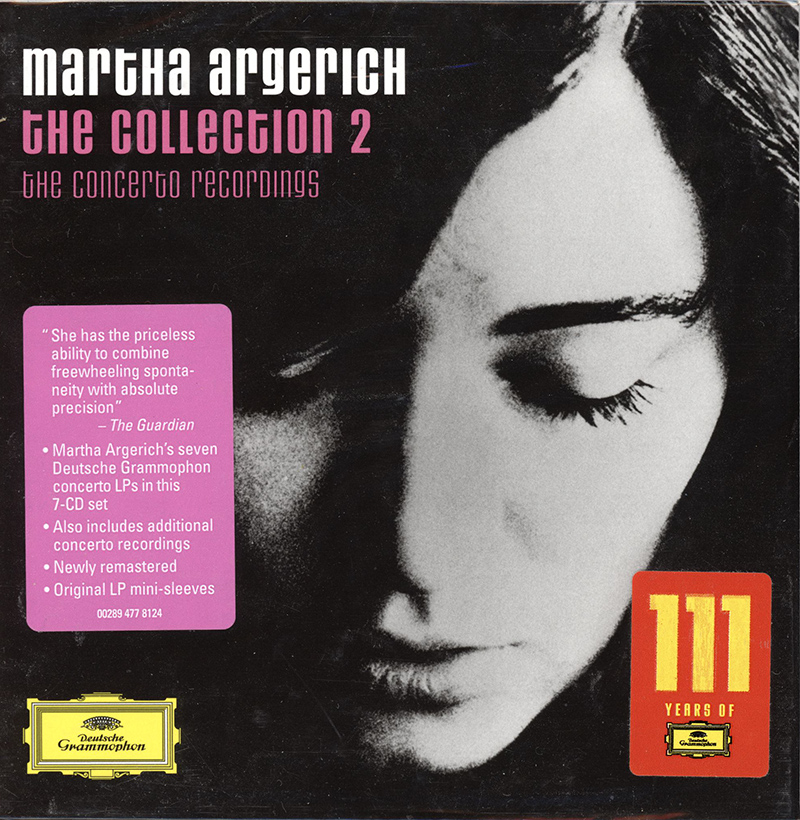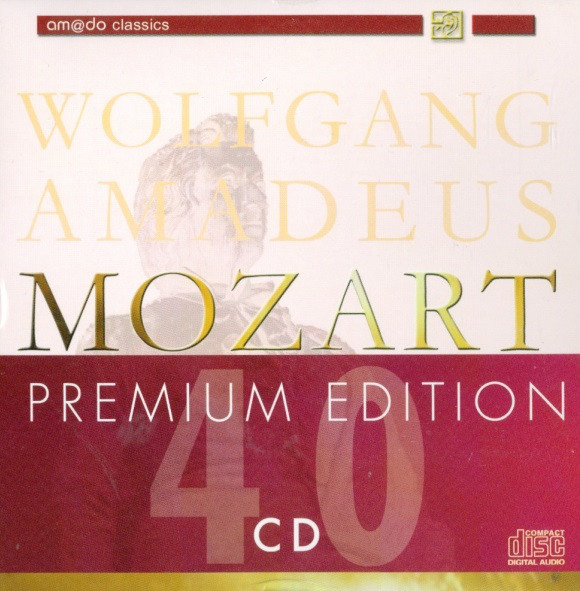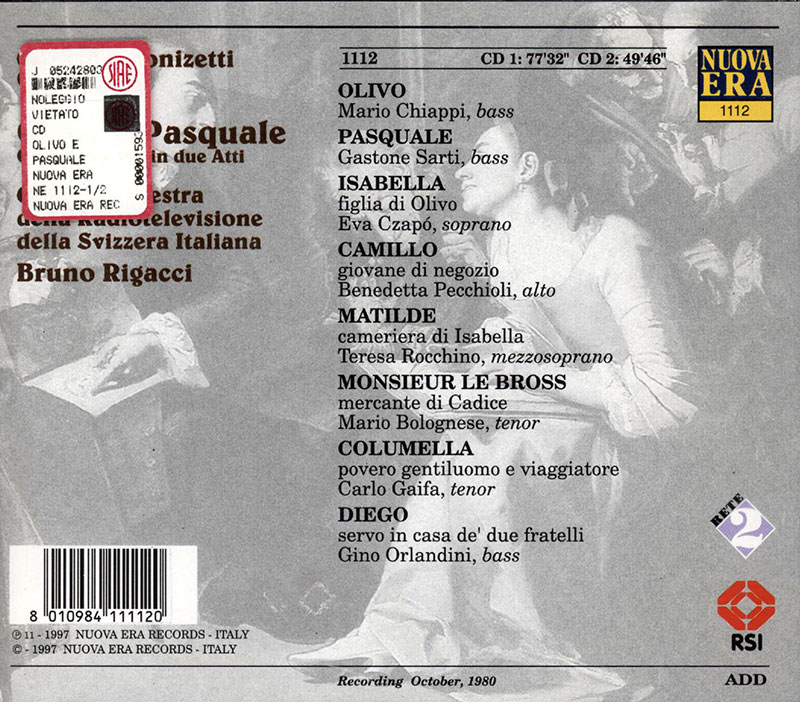Logowanie
KOLEKCJE!
BACH, CHOPIN, LISZT, MOZART, GRIEG, Dinu Lipatti, Otto Ackermann, Ernest Ansermet
The Master Pianist
PROKOFIEV, CHOPIN, TCHAIKOVSKY, SCHUMANN, BEETHOVEN, Martha Argerich, Claudio Abbado, Giuseppe Sinopoli
The Concerto Recordings
The Collection 2
Jakość LABORATORYJNA!
ORFF, Gundula Janowitz, Gerhard Stolze, Dietrich-Fischer Dieskau, Deutsche Oper Berlin, Eugen Jochum
Carmina Burana
ESOTERIC - NUMER JEDEN W ŚWIECIE AUDIOFILII I MELOMANÓW - SACD HYBR
Winylowy niezbędnik
ClearAudio
Essence MC
kumulacja zoptymalizowana: najlepsze z najważniejszych i najważniejsze z najlepszych cech przetworników Clearaudio
Direct-To-Disc
PIAZZOLLA, ChamberJam Europe
Tangos del Ángel y del Diablo
Direct-to-Disc ( D2D ) - Numbered Limited Edition
DONIZETTI, Eva Czapo, Mario Bolognesi, Benedetta Pecchioli, Orchestra Della Svizzera Italiana, Bruno Rigacci
Olivo e Pasquale
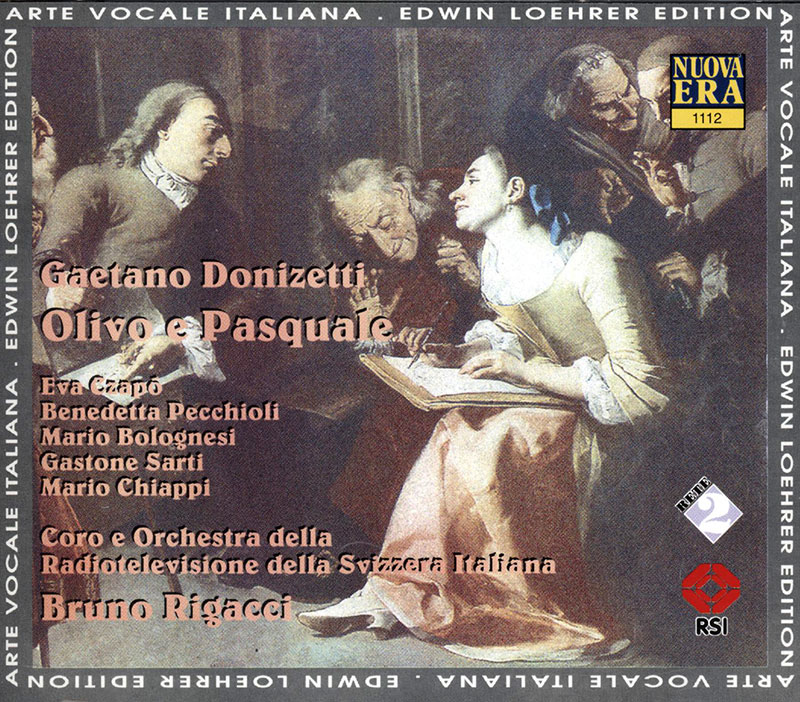
- Mario Bolognesi - tenor
- Eva Czapo - soprano
- Benedetta Pecchioli - alto
- Bruno Rigacci - conductor
- Orchestra Della Svizzera Italiana - orchestra
- DONIZETTI
DONIZETTI Olivo e Pasquale • Bruno Rigacci, cond; Mario Chiappi ( Olivo ); Gastone Sarti ( Pasquale ); Eva Czapó ( Isabella ); Benedetta Pecchioli ( Camillo ); Teresa Rocchino ( Matilde ); Mario Bolognesi ( Le Bross ); Carlo Giafa ( Read more ); Gino Orlandini ( Diego ); Swiss Italian Radio & Television O & Ch • NUOVA ERA 232889 (2 CDs 127:18 & no translation) Olivo e Pasquale was only moderately successful at its 1827 premiere. Contemporary reviews report that the soprano was not particularly talented, and the role of Camillo was written for a mezzo. A travesti boyfriend in an opera buffa was not well received. Donizetti revised the opera several times over the next three years until he finally was able to cast men in the male roles In this recording, however, the role of Camillo is once again a travesti role. The Gazzetta privilegiata di Milano reported in 1830: “Music that always is brilliant, though not always new.” It went on to praise several of the numbers and predicted a successful future for the work. The prediction proved to be accurate; Olivo e Pasquale eventually held the stage for 40 years with productions in several countries before passing into obscurity. Olivo e Pasquale had a rebirth at the Festival of Borga in Lucca in 1980. This recording is an outgrowth of that production, although with a different cast. It is part of a series of opera revivals championed by Edwin Loehrer, who was producer and director of the Swiss-Italian Radio Chorus. Olivo e Pasquale is early Donizetti, composed when he was still writing in the Rossini style. It is very similar to Rossini’s early one-act operas, especially La cambiale di matrimonio . The brothers Olivo and Pasquale plan to marry Olivo’s daughter, Isabella, to Le Bross, a rich merchant. Isabella has other ideas. She plans to marry her boyfriend, Camillo, a mere store clerk. When Le Bross learns that his future bride would rather marry someone else, he backs out of the marriage deal and helps Isabella and Camillo toward the altar. Her family is upset, but eventually she gets the man of her choice and a star-turn closing aria (with chorus—its only appearance). These are stock opera buffa characters, two-dimensional, and lacking the sincerity that later Donizetti characters, such as Nemorino and Adina, would embody. There is no big-hit number, but the score is tuneful, exuberant, and often quite engaging. Hints of the Donizetti we’re familiar with abound. The ensembles have the same sparkle as the finales in Don Pasquale . It is unfortunate that Nuova Era does not provide a more detailed plot synopsis, and the libretto is in Italian without translations. The cast is an agreeable collection of singers who understand the genre and flesh out their roles. Soprano Eva Czapó sounds a bit like the young Schwarzkopf. The sonics of this 1980 studio recording take a few moments to get used to. The singers are close-miked in a rather dry environment with little space around them. Collectors of bel canto rarities and of Donizetti’s operas will likely find much to enjoy with this Nuova Era Olivo e Pasquale. FANFARE: David L. Kirk
